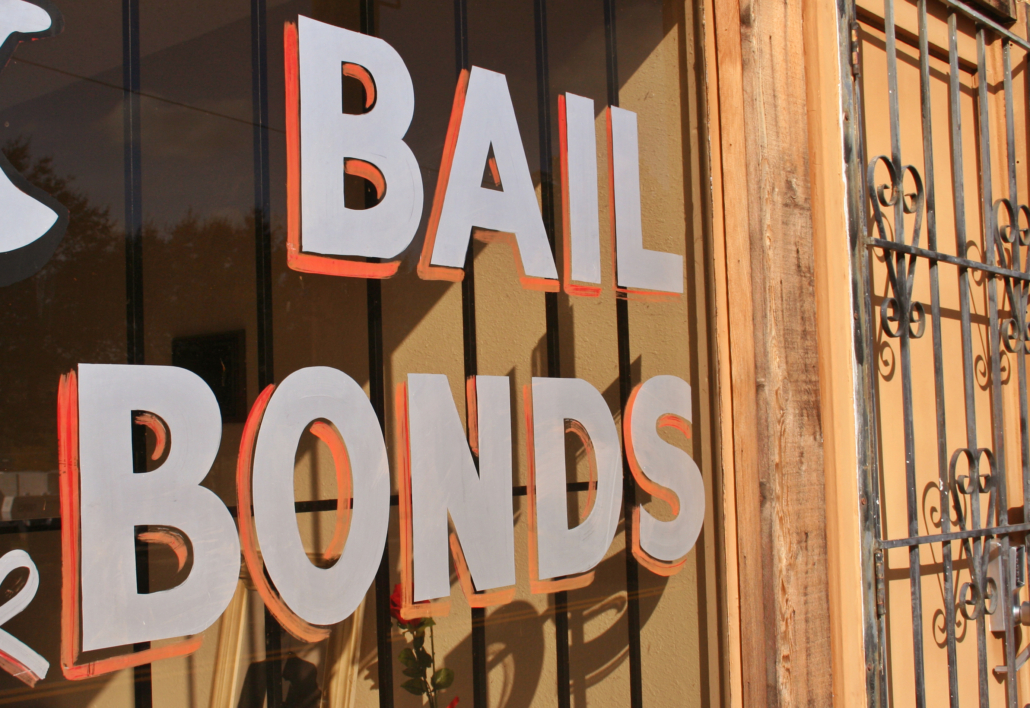The Function of Bail Bonds in Making Sure a Fair and Reliable Judicial Process
The function of bail bonds in the judicial process is diverse, touching on issues of fairness, performance, and economic variation. While they supply a crucial mechanism for offenders to secure pretrial release, bail bonds likewise increase important questions regarding equal rights and justice. How do these monetary tools influence the rights of the charged, and what are the more comprehensive ramifications for our legal system? As we explore the social considerations and legal frameworks bordering bail bonds, we must additionally consider the ongoing difficulties and reform initiatives that intend to stabilize specific liberties with public safety.
Understanding the Bail System
Browsing the ins and outs of the bail system is important for understanding how individuals charged of criminal offenses are momentarily released from custody while waiting for test. At its core, the bail system is developed to ensure that an accused person returns for court appearances while permitting them to preserve their life during the meantime. The process begins when a defendant is charged and brought before a judge, who establishes the bail amount based on factors such as the intensity of the claimed infraction, the accused's criminal background, and potential flight risk.
Bail can take different types, including money bonds, residential or commercial property bonds, and guaranty bonds. Surety bonds, usually assisted in by bail bond representatives, allow offenders to pay a percent of the bail amount, with the representative offering a monetary assurance to the court.

Lawful Framework and Rules
The legal structure and policies governing the bail system often play an essential role fit its application and justness. These legal constructs are mainly aimed at stabilizing the interests of the implicated, the targets, and society. Statutory arrangements, situation regulation, and procedural rules collectively develop the foundation whereupon the bail system runs. Key legislation such as the Bail Reform Act establishes out guidelines that establish eligibility, problems, and variables taken into consideration by courts when establishing bail.
Judicial discretion is an additional foundation of the bail procedure, encouraging courts to evaluate the subtleties of each instance. However, this discernment is led by a collection of statutory elements, including the seriousness of the infraction, flight danger, and prospective threat to the neighborhood. In addition, laws usually attend to various types of bail, such as cash bail, guaranty bonds, and release on recognizance, each with distinct demands and effects.
Moreover, reforms in the last few years have looked for to attend to systemic injustices, such as racial predispositions and financial disparities, influencing bail decisions (best bail bonds mansfield ohio). These reforms intend to improve the fairness of the judicial procedure, guaranteeing that the lawful structure adapts to contemporary societal requirements while maintaining public safety and security and due process
Influence On Offenders' Civil Liberties
While the bail system is developed to make certain both the implicated's look at trial and the security of the neighborhood, it dramatically influences defendants' legal rights, specifically when misapplied or affected by inequitable aspects. At its core, the requirement for bail can threaten the anticipation of virtue, a basic principle of justice. Accuseds that can not afford bail may deal with prolonged pretrial detention, which can result in loss of household, real estate, and work disruption, consequently impacting their capability to place an efficient defense.
Moreover, the bail system can worsen existing inequalities. Those with restricted funds might be pushed into pleading guilty to minimal charges to accelerate release, irrespective of their actual guilt or innocence. This dynamic raises concerns about the fairness and integrity of the judicial process, as it might urge people to decriminalize decisions based on monetary restrictions rather than the merits of their case.
Additionally, the mental impact of pretrial detention can harm an offender's psychological health and decision-making capability, additionally infringing on their rights. The system's reliance on monetary bail usually fails to think about alternate procedures, such as electronic monitoring or community supervision, which might balance public security with upholding accuseds' civil liberties.
Economic and Social Considerations

From a broader social viewpoint, the bail system contributes to bigger social inequalities. Communities with high prices of pretrial apprehension experience increased instability, as people that can or else contribute favorably why not try this out to their neighborhoods discover themselves knotted in the justice system. This sensation can fuel cycles of hardship and criminal activity, threatening public safety and security and community communication.
Additionally, the economic effects extend past individual accuseds, as taxpayers bear the prices of preserving jammed apprehension centers. This questions concerning the allowance of public resources and the effectiveness of such expenses in achieving justice - best bail bonds mansfield ohio. Addressing these social and economic considerations is vital for an extra equitable judicial process that prioritizes both fairness and performance in its procedures
Obstacles and Reform Initiatives
Navigating the obstacles of the bail system exposes a complex internet of legal, social, and economic problems that demand comprehensive reform efforts. At the heart of these obstacles is the disparity in exactly how bail influences individuals based upon their monetary condition. The present system frequently overmuch effects low-income defendants that are unable to afford bail, leading to prolonged pretrial apprehension. This not just threatens the presumption of virtue but likewise adds to jammed prisons and increased taxpayer problems.
These tools intend to replace cash money bail with non-monetary conditions of launch. In addition, some states are carrying out legal modifications to restrict or remove cash bail for non-violent offenses.
However, these reforms are met objection and obstacles, particularly worrying the precision and fairness of threat analyses and possible biases. Successful reform requires collaboration amongst policymakers, legal professionals, and area stakeholders to make sure that the modifications promote justice without jeopardizing public safety.
Verdict

Guaranty bonds, commonly helped important source with by bail bond agents, permit offenders to pay a percent of the bail amount, with the representative giving a monetary assurance to the court.
Key regulation such as the Bail Reform Act establishes out guidelines that establish eligibility, problems, and elements considered by courts when establishing bail.
In addition, guidelines often supply for from this source different kinds of bail, such as cash money bail, guaranty bonds, and release on recognizance, each with unique demands and ramifications.
While the bail system is developed to make sure both the accused's look at trial and the safety of the neighborhood, it significantly impacts offenders' rights, especially when misapplied or affected by inequitable elements.The bail bond system plays a pivotal duty in stabilizing the judicial process by offering financial systems that assist in offenders' launch while waiting for trial.